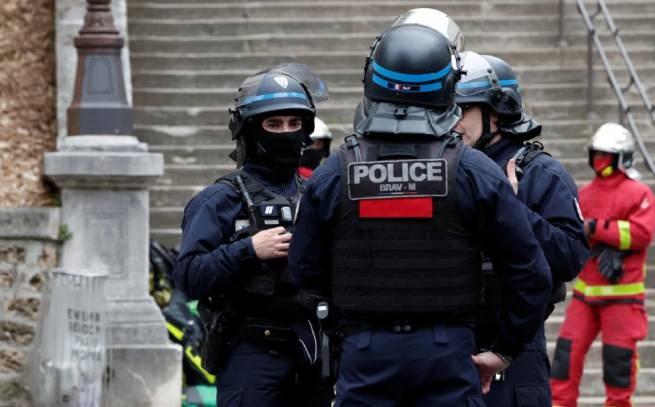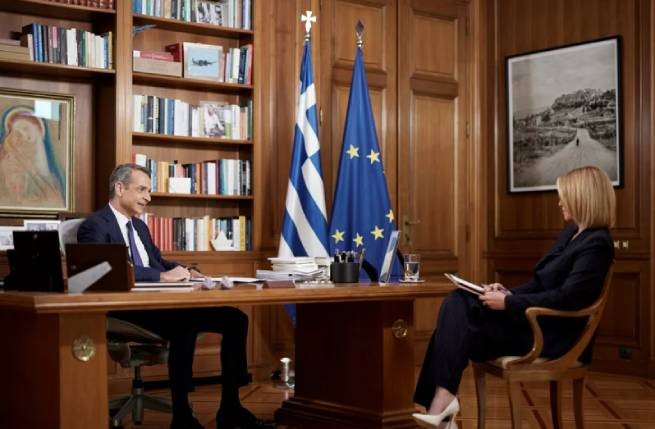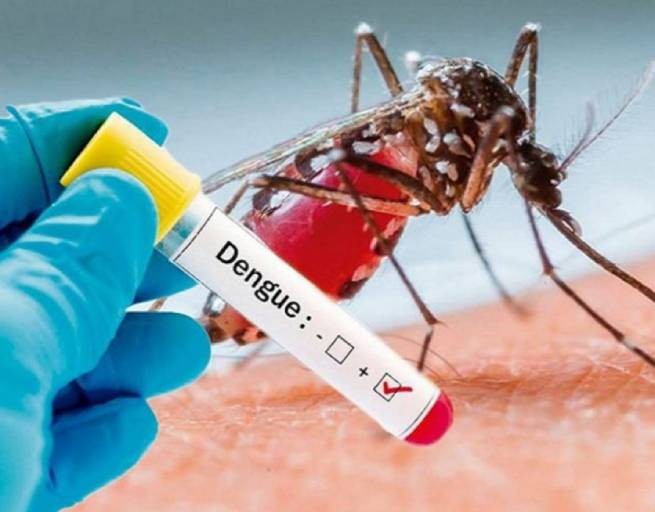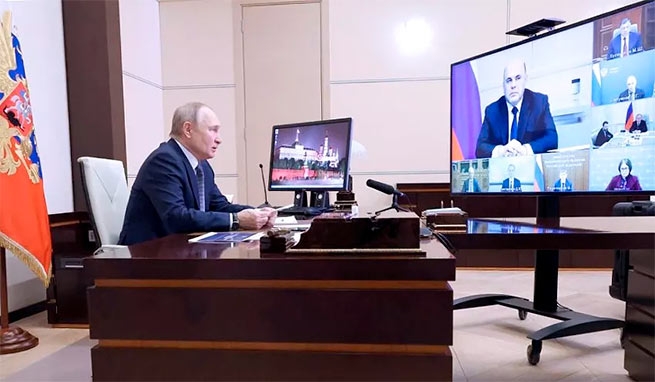Russian President Vladimir Putin cited new data showing positive prospects for the Russian economy. How true is this, and how effective have Western sanctions been?
American edition Washington Post writes about the situation with the Russian economy, which, according to the idea of the authors of the “hellish sanctions”, should have already collapsed, but nevertheless shows quite good results against the background of other countries of the world.
As world leaders travel to Davos for the World Economic Forum, there is one country that, quite predictably, stands out against this background, or rather, stands out by its absence. Russian officials are now personae non gratae (i.e., unwanted) in the Swiss city, while figures from Ukraine, such as First Lady Elena Zelenskaya, shine on stage in front of packed houses.
The symbolism is obvious. Russia’s invasion of Ukraine some 11 months ago resulted in Russian President Vladimir Putin and his allies now being considered “toxic” by the global elite, at least in its western segment. In this context, tough sanctions have been imposed on Russia, as well as restrictions on commercial exports, in order to isolate the country from the global economy, weaken the Kremlin’s military efforts, and punish Putin’s allies.
But did these sanctions work? How grounded are Putin’s claims?
The President of Russia yesterday, Tuesday, January 17, cited new government data indicating that the situation for the Russian economy remains positive. “The dynamics of the economy today looks better than predicted by many experts,” he said. In addition, he noted that, according to the Ministry of Economic Development, Russia’s GDP in the period from January to November 2022 decreased, but only by 2.1%. He even noted that “some of our experts, not to mention foreign ones, predicted a fall of 10, 15 and even 20%.”
“Initial calculations showed that the Russian economy contracted by 2.5% over the entire past year,” Putin said. “This is a significant improvement compared to the 33% drop in the Ukrainian economy last year. Our goal is to support and stabilize this positive trend.”
For many outside of Russia, these numbers are bewildering, given that the scale of the economic fire the country has been in since the invasion began was unprecedented. But Russian data does show that the impact of these sanctions has been less severe than expected. Moreover, even though Putin is not in Davos, Russia is still not completely cut off from the rest of the world.
Of course, it is possible that the Russian figures are not entirely reliable. But many people who live in Russia or have visited it report that life in the country is going on as usual.
“If this is a crisis for Russia, which it is, it is nothing like the crisis of the early 1990s,” Alexander Titov, a Russian immigrant and professor at Queen’s University Belfast who recently returned to his country, told The Conversation. “There were shocks,” Titov said, “but they were mild even compared to what it was at the beginning of the pandemic.”
Have the sanctions failed in the end?
Given the above, the question arises as to whether the sanctions ultimately failed. The short answer is “no”, but it does not cover all aspects of this complex issue. It is worth noting that Western sanctions and export restrictions are primarily aimed not at keeping bottles of Johnnie Walker off the shelves of Russian supermarkets, but at slowing down Moscow’s military actions in Ukraine. In addition, the impact of the sanctions is largely mitigated by Russian energy exports, which remain huge. But as Putin seeks to use these exports to pressure Europe, their power has waned. What’s more, a new energy price cap, which is about to take effect, will hit Russian exports even more.
“Russia is still an energy powerhouse, but its role has changed dramatically,” Vladimir Milov, a former Russian deputy energy minister who now lives abroad, told the Wall Street Journal. “Russia will have a smaller share of the oil and gas market and will receive less arrived, and she lost some of her geopolitical influence.”
This means a decrease in the income of the Russian state at a time when expenses are rising due to the invasion of Ukraine. According to official data, Russia’s budget deficit in 2022 was about $47.3 billion, equivalent to about 2.3% of GDP in one of the worst fiscal years in the country’s history. Although this deficit is several orders of magnitude smaller than that of the US, Russia does not have a “global” currency like the dollar in its hands, so it cannot print new money without repercussions for its economy. As Russian sanctions against US citizens have shown, the country has little influence in the international economy, except in the energy sector, which, as mentioned above, is steadily declining.
In the long term, the situation for the Russian economy does not look so rosy. Putin is right that the picture in 2022 turned out better than expected, but he is wrong if he thinks that this “positive” trend can continue this year. It is likely that the sanctions will have more serious consequences in the future and further reduce oil and gas revenues. Moreover, it is likely that the deficit will become even deeper, and resources on the ground will be dangerously limited. How quickly this happens will depend on the persistence of the West, where factors such as the relaxation of sanctions or even their deliberate circumvention have greatly benefited Russia in 2022.







More Stories
Teenager arrested in Paris: he wanted to “die as a martyr” at the Olympic Games (video)
power steering vs "Wagner" in Africa
Funds of the largest US bank JP Morgan Chase were arrested in the Russian Federation